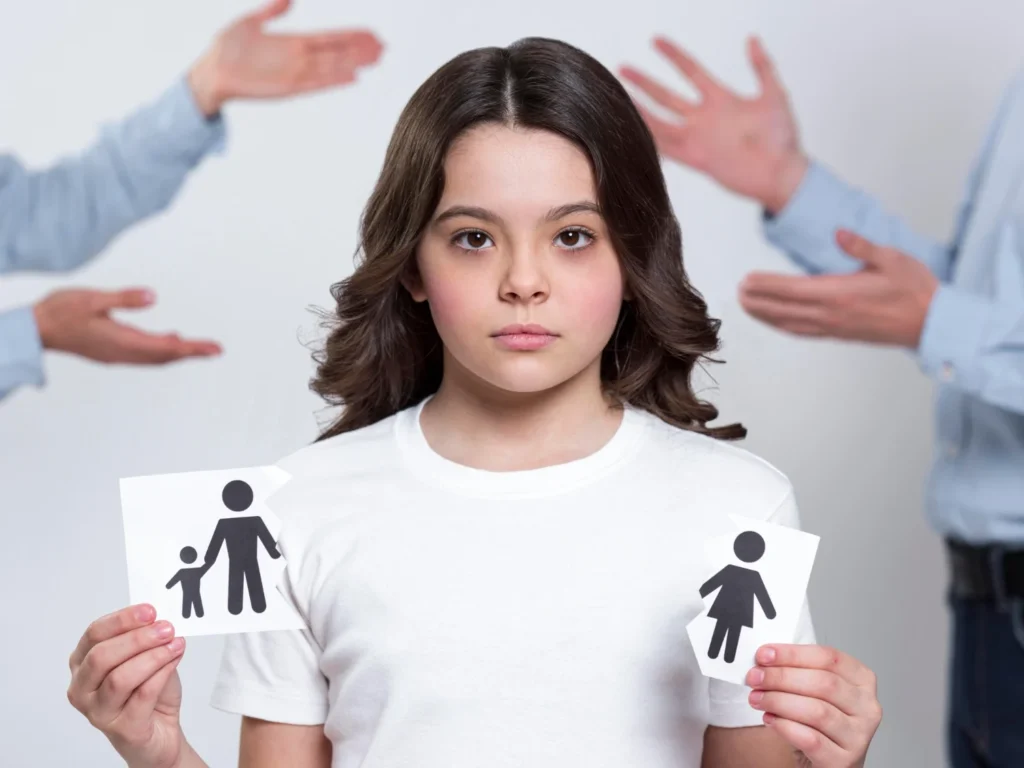Custody issues are some of the most emotionally challenging aspects of any family breakdown. Whether you’re separating from your spouse or facing a dispute over parenting rights, understanding how child custody laws work in the UAE is essential.
These laws can feel complex, especially for expatriates or unmarried parents, but they are designed with the best interests of the child in mind.
This guide explains what the laws are for child custody in the UAE, how decisions are made, what unmarried parents should know, and what to expect under Dubai’s child custody laws.
What Are the Laws for Child Custody in the UAE?
Child custody laws in the UAE are primarily guided by the Federal Personal Status Law, which is based on Islamic Sharia principles. These laws apply to Muslim residents.
However, under recent reforms and the introduction of non-Muslim family law options, non-Muslim residents also have the choice to apply foreign laws or UAE civil law through a newly established family court system.
In all cases, the court prioritizes the best interest of the child over any parental preference. Under UAE child custody laws, parental responsibilities are divided into two distinct roles: custodian and guardian.
The custodian is the parent who takes care of the child’s daily needs. This includes feeding, clothing, routine care, and providing a stable home environment. Typically, this role is awarded to the mother, especially during the child’s early years.
The guardian, on the other hand, is responsible for the child’s broader life decisions. This includes managing finances, arranging education, healthcare, and religious upbringing. This role is usually held by the father, even if the mother has physical custody.
Both roles are crucial, and the court expects cooperation between custodians and guardians to ensure the child’s best interests are always upheld.
Usually, the mother is awarded custody in early childhood, while the father retains guardianship. However, this can change based on circumstances such as remarriage, neglect, or the child’s best interests.
Custody After Divorce: What to Expect
For married couples going through a divorce, the court carefully examines each parent’s ability to provide a stable, safe, and supportive environment. Laws for child custody in the UAE tend to grant physical custody to the mother, especially for young children, unless proven unfit.
Fathers, as legal guardians, retain the right to be involved in the child’s life, including decisions about education, religion, and travel. However, if either parent violates the terms of custody or neglects their duties, the other parent can file for full custody or modification of the court’s decision.
Shared custody is not commonly granted in the traditional Sharia-based system, but it is more accessible under the new civil family law introduced in Abu Dhabi and is expanding to other emirates.
Dubai’s Child Custody Laws: Key Highlights
Under Dubai’s child custody laws, cases are handled by the Dubai Family Court, and decisions reflect the UAE’s overall approach with some emirate-specific procedures.
Child custody laws in Dubai follow specific age and responsibility guidelines but always aim to protect the child’s well-being above all. Here’s what parents need to know:
Age-Based Custody Guidelines
In most cases, Dubai courts grant custody to the mother until the child reaches 11 years old for boys and 13 years old for girls. After this age, the father has the right to apply for custody, which the court will review based on the child’s best interests.
Impact of Remarriage or Unfitness
If the mother remarries or is found unfit, due to reasons like neglect, substance abuse, or inability to care for the child, custody may be transferred to the father or, in some cases, to another suitable relative.
The Father’s Ongoing Responsibilities
Even if custody is not granted to the father, he remains the legal guardian and must provide financial support. This includes ensuring a safe living environment and covering the child’s educational and medical needs.
Child’s Best Interests Come First
Dubai’s child custody laws prioritize the child’s emotional, physical, and social welfare over traditional norms. The court’s primary concern is not the gender of the parent but which arrangement offers the child the most stability and care.
Expats in Dubai may request the application of their home country’s custody laws, but this depends on formal legal procedures and is subject to the court’s approval.
Child Custody Laws for Unmarried Parents
Child custody laws for unmarried parents in the UAE have undergone significant change in recent years.
Previously, children born outside of marriage faced legal complications, but updated civil family laws now allow unmarried parents, particularly non-Muslims, to register and raise children legally. We recommend hiring a reliable family lawyer in Dubai to help you.
Unmarried parents in the UAE can now legally register their children and seek custody under updated civil laws.
However, Dubai child custody laws still require courts to determine custody and guardianship based on the child’s best interests; marital status does not automatically decide who gets custody. When unmarried parents separate, the court considers several important factors:
Parental Capabilities and Living Conditions
The court reviews each parent’s ability to provide a stable and safe home. If a parent lacks consistent housing or is unable to care for the child daily, this may affect their chances of gaining custody.
Emotional and Financial Stability

Both emotional support and financial responsibility matter. A parent with steady income and a strong emotional bond with the child will be viewed more favorably under UAE laws for child custody.
The Parent-Child Relationship
Courts assess each parent’s involvement in the child’s life. A parent who is consistently present and active in the child’s upbringing has a stronger case for custody.
The Child’s Well-Being
Ultimately, the court focuses on what best supports the child’s health, development, and stability. Older children’s preferences may be considered but are not the deciding factor.
If you are an unmarried parent, it’s crucial to understand how your situation aligns with either the Sharia-based family law or civil family court options now available in the UAE. In either case, legal recognition of the child and formal custody rights must be established through the court.
How the Courts Decide Custody
When deciding who gets custody, the UAE courts follow a case-by-case approach. While the law provides general guidelines, judges have discretion to consider the specific circumstances of each family.
When deciding custody arrangements, UAE courts follow a case-by-case approach guided by the child custody laws and the child’s best interests. Several key factors are taken into account before a final ruling is made.
Age and Needs of the Child
The child’s age plays an important role. Younger children are generally placed with the mother unless circumstances suggest otherwise. The court also considers the child’s developmental, emotional, and physical needs at each stage of life.
Emotional Bond with Each Parent
Judges assess the strength of the relationship between the child and each parent. A parent who has been consistently involved in the child’s upbringing is more likely to be favored for custody.
Stability and Safety of the Home
The court examines each parent’s living environment, ensuring it is safe, stable, and suitable for raising a child. Frequent moves, unsafe housing, or exposure to harmful influences may count against a parent seeking custody.
Moral and Mental Fitness
Under child custody laws, the court also evaluates the mental and moral fitness of the custodian. A parent’s behavior, character, and lifestyle are considered, especially if any aspect could negatively impact the child’s well-being.
History of Abuse or Legal Issues
If there is any record of abuse, neglect, or prior legal violations involving the child or parent, this can heavily influence the court’s decision. The child’s protection from harm is always the highest priority.
Even if one parent is granted custody, the other parent will usually be granted visitation rights unless it’s proven that such visits would harm the child.
Parents are also expected to cooperate in a respectful and child-focused manner. If one parent obstructs visitation or disrespects the court’s orders, this could be used against them in future legal actions.
Conclusion
Family law cases, especially those involving child custody laws, are sensitive and legally complex. Misunderstanding the legal terms or procedures can delay your case or lead to outcomes that don’t reflect your child’s best interests.
Ayesha Aljaziri Lawyers & Legal Consultants offer specialized support in family law, including custody disputes, guardianship rights, and international custody concerns. For confidential legal consultation, you can contact us at +971 5594 83605 or email info@aljaziriadvocates.com.








